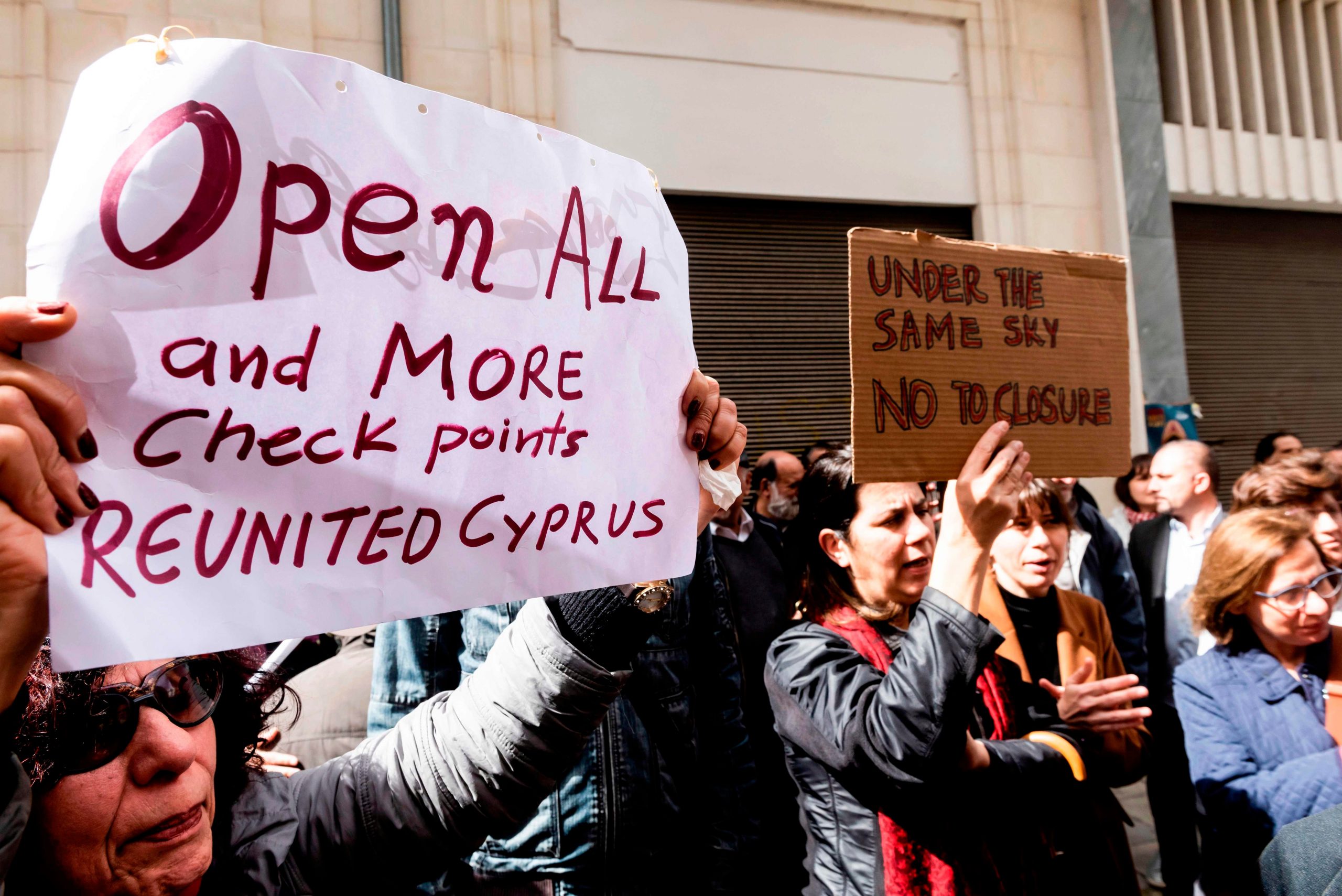The Greek Cypriot administration decided Friday to unilaterally close down four checkpoints on the U.N.-controlled Green Line, dividing the island’s south and north, for seven days as a precaution to the coronavirus outbreak.
However, the Council of Ministers’ decision to close the checkpoints of Ledra Street, Astromeritis, Lefka and Dherynia, for the first time since 2003, faced harsh criticism and protests after it was seen as an effort to further divide the island.
Cyprus has no reported cases of coronavirus, but Health Minister Constantinos Ioannou said the four checkpoints, including one in the capital Nicosia, used by hundreds of people daily, would close starting Saturday, Feb. 29.
“This is a temporary measure and the aim is to protect both communities,” the minister said, adding that the U.N. has been informed while President Nicos Anastasiades has spoken with Turkish Cypriot leader Mustafa Akıncı.
Turkish Cypriot leader Mustafa Akıncı, however, joined the critics, saying the measure “had nothing to do with the coronavirus.”
The situation at the checkpoint was “chaotic” and the government’s decision separated rather than united the two communities, he added.
In a post on Facebook, Akıncı wrote: “Have just witnessed the chaotic situation at the Kermia-Ay Dometios Checkpoint. Hundreds of cars had been waiting for hours for the only two GC police officers to check their ID’s, as a measure which has been introduced today and definitely has nothing to do with the coronavirus. Lots of people are protesting, some were leaving their cars to be able to cross on foot. As I have already conveyed to Mr. Anastasiades, we need to tackle the problem on a scientific basis; but the decision of the GC leadership, unfortunately, lacks that and is in the direction of separating the two communities more, rather than uniting them.”
Following the decision that created dismay among the people, a group of Greek Cypriots protested at the Ledra checkpoint, taking down barricades to reach the Turkish Cypriots that were waiting on the other side for support. The protesters, which were hindered by the Greek Cypriot Police, shouted slogans like, “Peace in Cyprus cannot be prevented” at the Green Line in both Turkish and Greek.
Prime Minister Ersin Tatar of the Turkish Republic of Northern Cyprus (TRNC) also condemned the decision saying that the unilateral closure was “meaningful and that this move once again reflected the disrespectfulness toward Turkish Cypriots.”
“As a peace movement, this measure is not only an insult to our intelligence but also the rights of our people,” said Kemal Bakykallı of the Unite Cyprus Now movement.
Another activist in the same group, Andromachi Sophocleous, told Reuters: “It is cooperation which is needed and not further measures which enhance partition.”
The Cyprus problem has remained unresolved for decades despite a series of efforts by the U.N. for a lasting settlement between Turkish and Greek Cypriots.
The latest attempt to resolve the problem in Switzerland failed in 2017 and recent tensions in the Eastern Mediterranean have further complicated efforts for a settlement.
The Greek Cypriot administration continues to oppose recognizing the political equality of Turkish Cypriots and claims to be the island’s sole legitimate government.
The island has been divided into a Turkish Cypriot government in the northern third and Greek Cypriot administration in the south since a 1974 military coup aimed at Cyprus’ annexation by Greece.
Turkey’s intervention as a guarantor power in 1974 had stopped yearslong persecution and violence against Turkish Cypriots by ultra-nationalist Greek Cypriots.
The TRNC was founded in 1983.










Discussion about this post